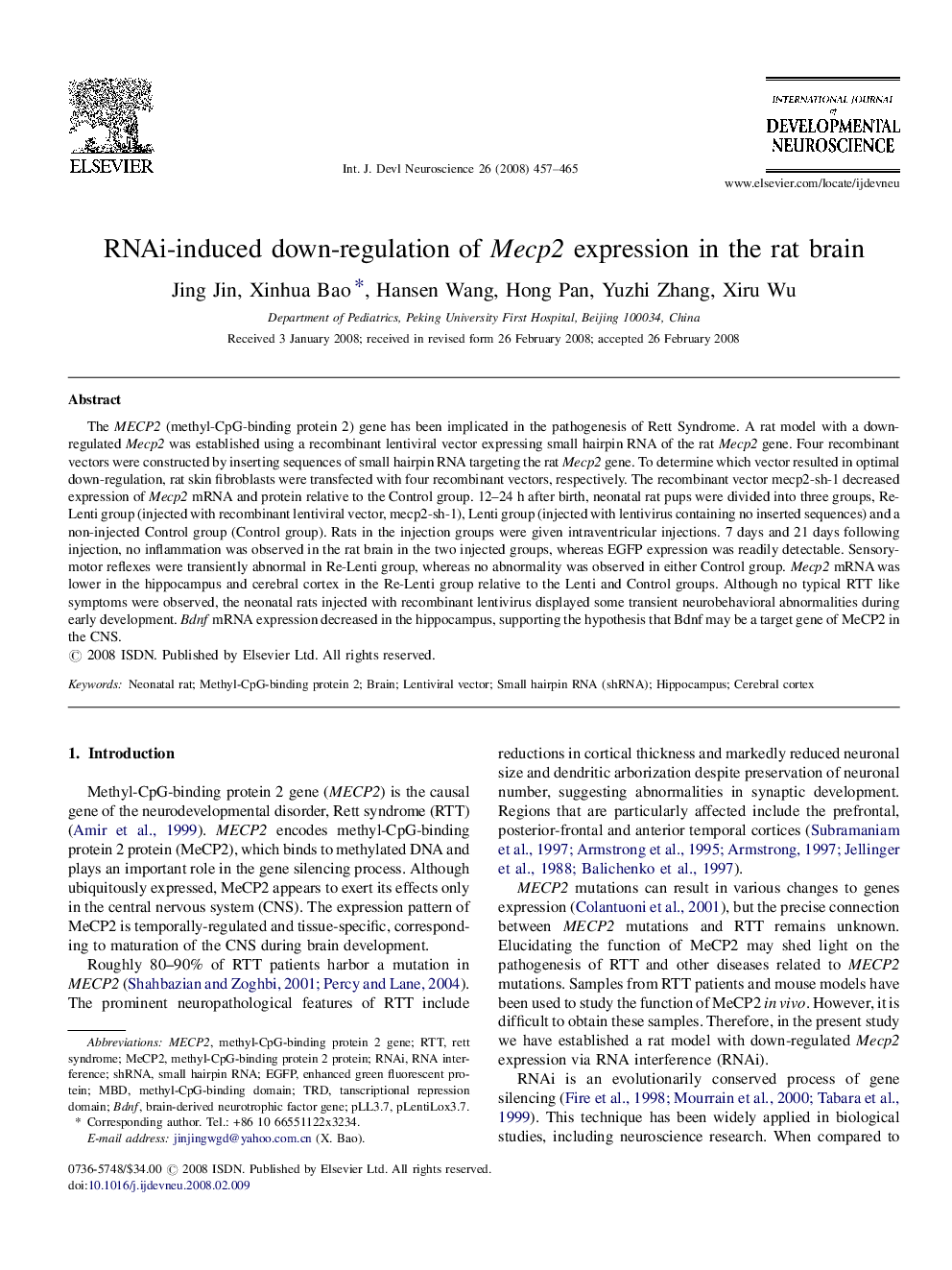| Article ID | Journal | Published Year | Pages | File Type |
|---|---|---|---|---|
| 2786678 | International Journal of Developmental Neuroscience | 2008 | 9 Pages |
The MECP2 (methyl-CpG-binding protein 2) gene has been implicated in the pathogenesis of Rett Syndrome. A rat model with a down-regulated Mecp2 was established using a recombinant lentiviral vector expressing small hairpin RNA of the rat Mecp2 gene. Four recombinant vectors were constructed by inserting sequences of small hairpin RNA targeting the rat Mecp2 gene. To determine which vector resulted in optimal down-regulation, rat skin fibroblasts were transfected with four recombinant vectors, respectively. The recombinant vector mecp2-sh-1 decreased expression of Mecp2 mRNA and protein relative to the Control group. 12–24 h after birth, neonatal rat pups were divided into three groups, Re-Lenti group (injected with recombinant lentiviral vector, mecp2-sh-1), Lenti group (injected with lentivirus containing no inserted sequences) and a non-injected Control group (Control group). Rats in the injection groups were given intraventricular injections. 7 days and 21 days following injection, no inflammation was observed in the rat brain in the two injected groups, whereas EGFP expression was readily detectable. Sensory-motor reflexes were transiently abnormal in Re-Lenti group, whereas no abnormality was observed in either Control group. Mecp2 mRNA was lower in the hippocampus and cerebral cortex in the Re-Lenti group relative to the Lenti and Control groups. Although no typical RTT like symptoms were observed, the neonatal rats injected with recombinant lentivirus displayed some transient neurobehavioral abnormalities during early development. Bdnf mRNA expression decreased in the hippocampus, supporting the hypothesis that Bdnf may be a target gene of MeCP2 in the CNS.
